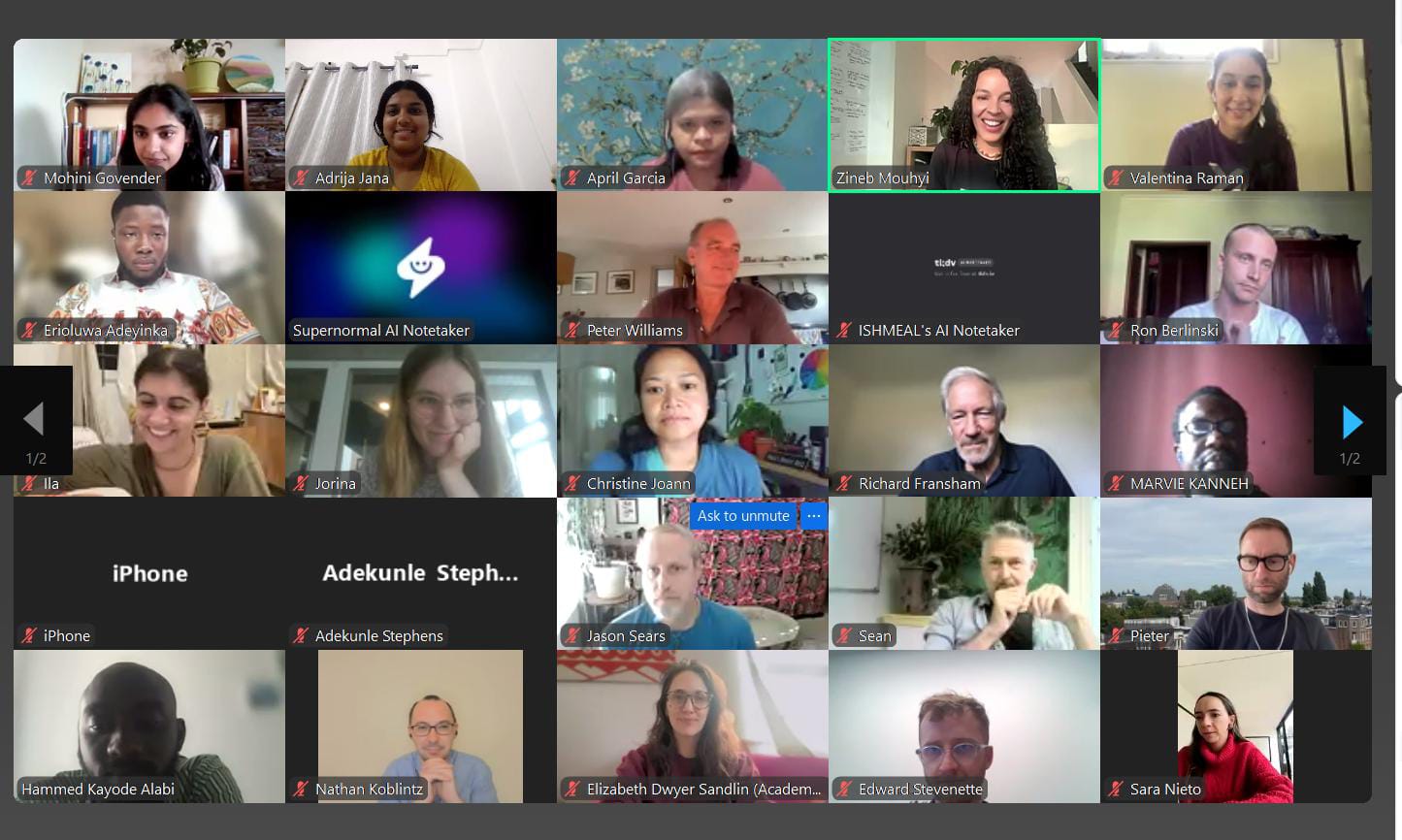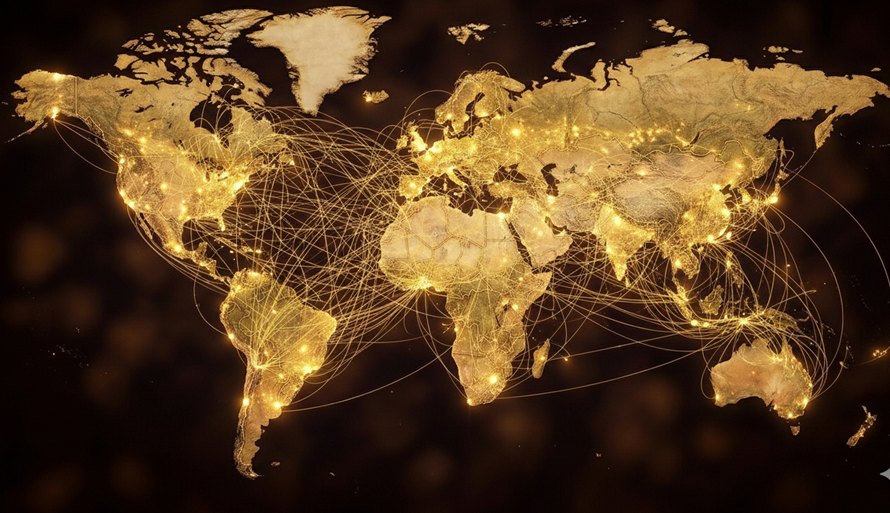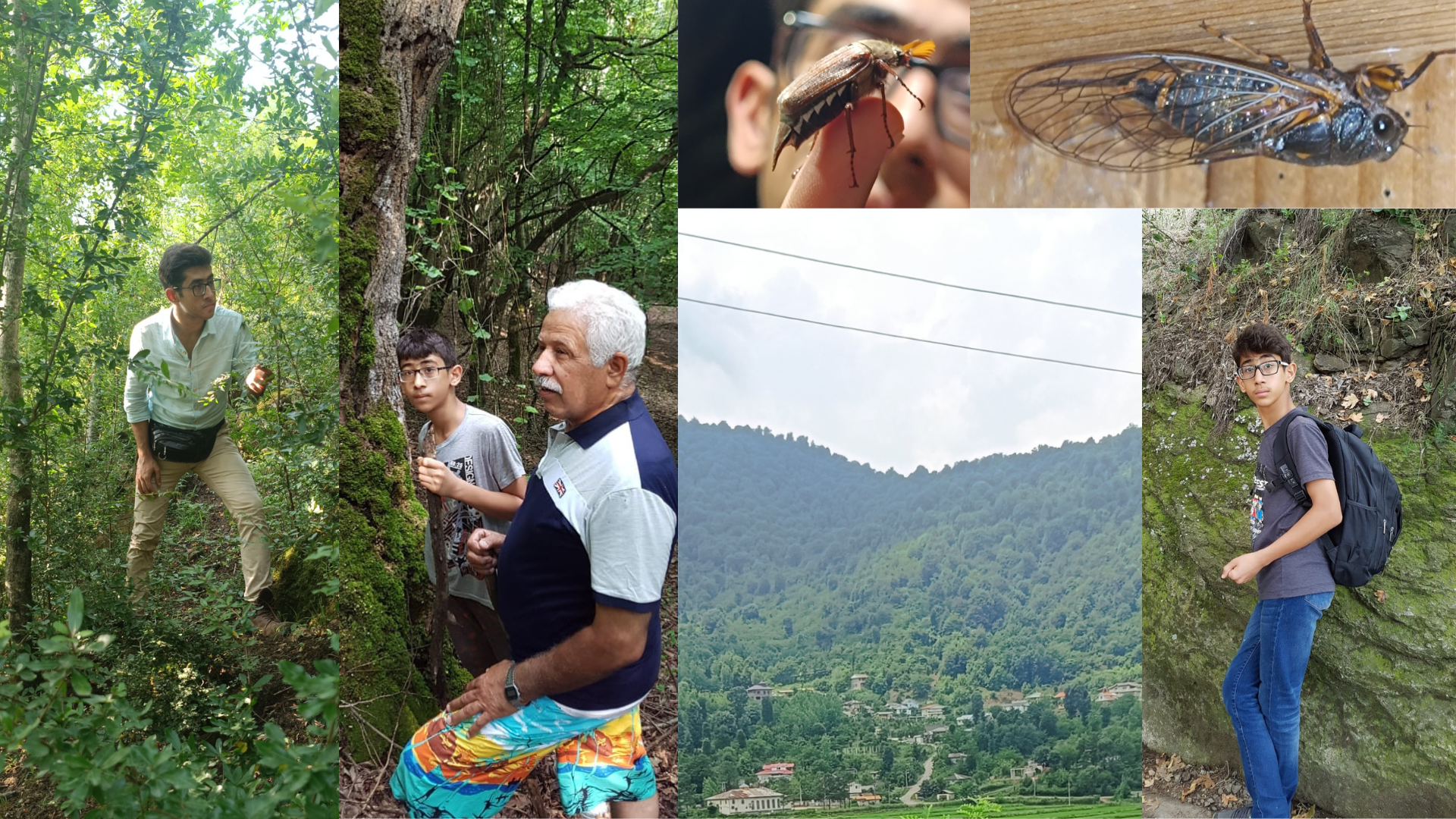This month, we are holding space for the profound disorientation many of us are feeling, as organisations and institutions we once trusted reveal their true priorities, and as the systems we've been taught to navigate show themselves incapable of responding to the crises of our time. We are living through a moment where multiple crises are compounding and accelerating, demanding that we fundamentally reorganise not just what we do, but how we come together to do it.
“The tension of our times is that we want our organisations to behave as living systems but we only know how to treat them as machines.”
Margaret Wheatley
Crisis of Institutional Relevance
We inhabit organisations and institutions built for a world that no longer exists. Many of them were designed during periods of relative stability that contrast with our current moment. They operate on the assumption that tomorrow will essentially resemble today and that the existing order can be reformed rather than transformed.
This means that the stakes are far higher than our current organisational logics allow us to admit. Climate breakdown isn't waiting for our five-year strategic plans. Fascism isn't honouring our impact reports. Genocide isn't respecting our quarterly reviews.
“For the master’s tool will never dismantle the master’s house. They may allow us temporarily to beat him at his own game, but they will never enable us to bring about genuine change.”
Audre Lorde
Centering as a Mechanism of Power
Centering is how power maintains itself: placing certain ways of being, knowing, and organising at the core, while relegating others to the margins. In most of our organisations, what gets centered are white supremacist, capitalist, patriarchal, and anthropocentric forms of power.
Centering of Whiteness
Not just racial hierarchy, but centering Euro-centric ways of being as "universal" norms, imposing standards and binaries that erase non-Western understandings of identity, expression, and relationship.
Centering of the Mind
The separation of mind and body, reason and emotion. Organisations become disembodied spaces where anything beyond "white collar" presentation is pathologised as "unprofessional."
Centering of Capital
The commodification of life and prioritisation of profit over all else, leading to financialisation of everything and replicating extractive relationships even within liberation work.
Individual Centering
The myth of the autonomous individual, divorced from our interdependence and responsibilities to relationships and communities.
Centering of the Human
The severing of human consciousness from the animate Earth, with organisations operating as if separate from the ecological systems that sustain all life, disconnected from their embeddedness in the living world.
Centering of the Present
Temporal colonialism imposes linear time and productivity demands that sever our connections to ancestral wisdom, future generations, and reciprocal relationships across species, suppressing our humaness.
Epistemic Centering
"Zero-point epistemology" (Walter Mignolo) - where dominant knowledge systems present themselves as neutral and universal while othering all alternative ways of knowing.
Centering of Ability
The assumption that neurotypical, physically able bodies and minds are the default standard. This marginalises disabled experiences and treats accommodation as exceptional rather than fundamental to inclusive design.
The result of these ideologies and structures being centred is organisations that subconsciously replicate the same systems of harm they claim to address.
What does Recentering Look Like?
Well, transparently, we don't know yet. This is something we need to be actively asking ourselves. What do the futures of our deepest longings (futures that house our collective liberation) feel like? What do they look like? What we do know is that it requires fundamentally reorganising our institutions around values, principles, and beliefs that embody the liberation we seek. Here are some components that we are recentering:
Recentering Life and the More-Than-Human World:
- Moving from anthropocentric to relational organising that recognises the more-than-human world as sentient with agency and rights.
Recentering Indigenous and Ancestral Wisdom:
- Recognising and learning from the land and from Indigenous peoples who have maintained sustainable relationships with place for millennia.
Recentering the Collective and Interdependence:
- Shifting from individuality to organising that emerges from everywhere and scales through relationship rather than hierarchy.
Recentering Bodies and Somatic Wisdom:
- Recognising healing that happens through the body, not just the mind and emotional intelligence valued alongside analytical intelligence.
Recentering Cyclical Processes:
- Moving from linear colonial conceptions of time to organising rhythms that honor natural cycles, patterns, and the spiraling nature of transformation.
Recentering Multiple Ways of Knowing:
- Refusing the hierarchy that places Western academic knowledge above all other forms of knowing. Recognising dreams, stories, songs, ceremony, and embodied knowledge as equally valuable to scientific knowledge.
Recentering Relationality and Accountability:
- Prioritising relationships and process over outcomes and products. This means accountability systems that seek to heal harm rather than simply punish it.
Recentering Regeneration:
- Moving beyond "doing less harm" to organising that actively generates conditions for all life to thrive.
The invitation
This moment demands us to grapple with some fundamental questions:
- Where do our organisational structures mirror colonial hierarchies and extractive relationships?
- What forms of violence (physical, emotional, spiritual, cultural) are we unconsciously perpetrating or allowing?
- What would it mean to reorganise everything we do around protecting and nurturing all life?
- What experiments in organising are we being called to try, even if we don't know how they'll turn out?
The future is asking us to become ancestors worthy of the generations who will inherit the world we're creating together.
Want to explore this conversation more deeply? Here is a curated list of recommended resources from the YxY team:
- Emergent Strategy by adrienne maree brown — on organising as a living system.
- Mutual Aid: Building Solidarity During This Crisis (and the Next) by Dean Spade — on solidarity and survival beyond institutions.
- Braiding Sweetgrass by Robin Wall Kimmerer — on learning from plants, reciprocity, and Indigenous wisdom.
- Decolonizing Wealth by Edgar Villanueva — on how colonial logics show up in philanthropy and how to move toward healing.
- The Dawn of Everything by David Graeber & David Wengrow — on reimagining human history and possibilities for organising differently.
- Sand Talk: How Indigenous Thinking Can Save the World by Tyson Yunkaporta — on relationality, story, and pattern-thinking for systems change.

.png)





Comments